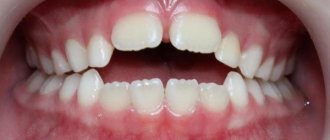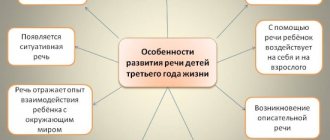Of course, at two years old, almost no child can yet boast of incredible achievements in terms of speaking skills. Moreover, today speech therapists talk about late speech development in children. It should be borne in mind that the development of speech is a rather individual process that occurs differently for everyone. However, if the baby has noticeable difficulties in this matter, it is necessary to help him cope with this stage of development. After all, most speech therapy problems are easily solved at a very early age. And the younger the child, the easier it is for him to deliver correct speech.
Standards for developing speaking skills
It is important to note that normative indicators are fairly generalized and dry data. They do not take into account the individual physiological and psychological characteristics of the child, which in most cases play a decisive role. In many cases, only specialists can determine whether the baby has any difficulties or abnormalities.
Be that as it may, the official norms for the development of the speech apparatus in children are considered to be:
- up to 5-6 months – the period of humming, when the baby makes sounds that are intonationally similar to familiar words;
- 7-8 months – 1 year 2 months – imitation of animals, repetition of monosyllabic words (“give”, “ma”, “ba”, “meow”, “woof”);
- 1 year 2 months – 2 years 6 months – expansion of vocabulary, compilation of the first phrases, phrases and sentences;
- 2 years 7 months – 3 years 5 months – consolidation and clear formulation of sentences, word games, composing stories out loud.
It should also be taken into account that girls begin to speak much earlier than boys. They actively imitate adults, quickly copying their words, intonation and pronunciation. In turn, boys find it easier to form grammatically correct sentences.
Why can a child of 2 years be silent or speak poorly?
Of course, the reasons why a baby may not talk or do it with great difficulty at this age can be caused by injuries, illnesses or developmental delays. However, experts identify 2 more reasons, not related to the above problems, why a baby may experience difficulties with speech formation:
- Lack of sufficient spoken communication. Speech therapists say that it is necessary to talk with the baby from the first days of his life. This should be done not only so that he hears words and sentences, but also to awaken his interest in speech. Subsequently, this will help to captivate the child, and he himself will strive to quickly master conversational skills.
- Slurred, fluent, or rapid speech in adults. If the child’s environment communicates too incomprehensibly for the baby, he simply will not be able to understand and repeat the words of adults. Parents should speak more slowly, more clearly and expressively, and not only in direct communication with the baby, but also when they are simply nearby.
Signs of a speech development problem
Not all parents have the same attitude towards the pace of their child’s acquisition of native speech. Some are dejected that the child does not recite children’s poems by heart at the age of 2, while others are careless about the fact that in the third year of life the child does not speak or communicates in a “gibberish” language, and no one except his mother understands him .
If you have doubts about whether speech is developing at the right pace at two and a half years, you should not rely on the opinions of friends or read forums - it is better to consult a speech therapist for advice. It is reasonable to do this at the age of 2 years 4 months, but you can ask your questions earlier. 2.4-2.6 years is the recommended age.
At what age does a child need a speech therapist, when is it better to show him for the first time?
The Russian Union of Pediatricians confirms that the speech development of boys may lag slightly behind the achievements of girls of the same age. The reason for this discrepancy is that in boys, the connection between the two hemispheres, which ensures their coordinated work, is formed with some delay.
It is more difficult for them than for girls to formulate their statements grammatically correct. Over time, this dissonance is eliminated; often it is men who have vivid figurative speech, they are successful in the literary field.
Signs of being behind the age norm:
- the baby cannot follow a simple 2-step instruction: “First put a chair, then put a teddy bear there.”
- his vocabulary is much poorer than that of his peers and ranges from 20 to 50 words.
- he does not address adults with requests and questions.
- almost always uses gestures to explain his needs rather than words.
- he doesn’t care whether those close to him understand what he says.
- he cannot show the named familiar object, or bring, at the request of an adult, something that is not in sight.
- There are no phrases of even two words in the baby’s speech.
- he hums or speaks in his own language.
- does not understand words and does not speak.
- he is not attracted to reading works of art, telling poems, fairy tales.
- he does not repeat or recite short poems on his own.
These symptoms can be observed in combination or separately. They signal a delay in speech development - a condition that can be compensated by regular independent activities with the baby, or a general underdevelopment of speech - a more complex pathology, the correction of which will require much more time.
Main differences:
- Tempo speech delay, or speech development delay (SSD) - there are no organic lesions, intelligence and emotional development are normal, “he understands everything, but cannot say.”
- General speech underdevelopment (GSD) is a pathology based on damage to the central nervous system, but along with the speech anomaly, other mental processes (attention, thinking, memory) very often suffer secondarily.
The concept of tempo speech delay is applicable to children under 3 years of age. After this age, an easily correctable disorder develops into a serious problem and turns into a diagnosis.
What environment will positively help a child quickly form correct speech?
If a two-year-old child does not speak or demonstrates poor speech abilities, you should pay attention to such environmental parameters as:
- active communication between family members;
- the presence of sufficient communication between the child and his peers (or slightly older children);
- absence of constant distracting noise (loud TV, computer, etc.).
It is necessary, first of all, to provide a high-quality language environment in which the child can easily perceive the speech of others, understand it and, accordingly, reproduce it independently.
Hardware examinations for speech delay
To diagnose the disorder, it is important to conduct hardware examinations (very often neurologists neglect them, so parents can conduct them on their own initiative):
- Dopplerography of the vessels of the neck and head. It has been statistically proven that with motor alalia, problems with cerebral circulation (for example, venous congestion) are common. That is, the brain does not have enough nutrition. To exclude this factor, it is necessary to conduct a study, and based on the results, the neurologist will prescribe therapy if necessary. Usually, if there are such problems, treatment includes manual therapy - massage, osteopathy, as well as hirudotherapy, sometimes diuretics (to reduce ICP), etc.
- EEG – electroencephalogram . This study shows the level of maturity of the cerebral cortex by measuring its bioelectrical activity. As a rule, it does not provide a clear understanding of structural disorders, but it allows one to exclude epileptiform activity, paroxysmal activity and identify the most noticeable pathologies. For example, a violation of electrogenesis in the area of stem structures is often detected, which helps in making a so-called topical diagnosis.
- Evoked potentials. This examination can be performed separately on different sensory systems. For those who don't talk, I recommend doing ASEPs (acoustic brainstem evoked potentials), CSEPs (cortical auditory evoked potentials), and CEPs or P300s (cognitive evoked potentials). In different clinics they are done a little differently, but the main task of the research is solved perfectly everywhere: it is necessary to study the quality of processing of the auditory impulse at the subcortical and cortical level. This is NOT a hearing test. Physiological hearing may be normal, but the child may not understand spoken speech (speech auditory agnosia/sensorimotor alalia). Even with the understanding of speech preserved at first glance (“understands everything, but does not speak”), disturbances in the conduction of auditory impulses are often detected, as well as signs of structural subcortical dysfunctions (often the brain stem, cerebellum).
- MRI. Many parents are afraid to give their little child an MRI because... supposedly it is done under anesthesia. It is necessary to distinguish between anesthesia and sedation, that is, drug-induced sleep. These are different things. Sedation is not traumatic for the nervous system. Often you can do without this examination, but in some cases it may be necessary to clarify the diagnosis. Magnetic resonance imaging is very informative and accurate.
How to encourage a child to talk a lot and competently?
Many children tend to withdraw into themselves in the process of formulating phrases or even single words and not say them out loud. For the active development of the speech apparatus in two-year-old children, experts advise:
- Do not scold your child for silence or mistakes. This can form a child’s negative attitude towards conversations, and he will not want to do anything in this direction.
- Encourage the baby for pronouncing words, praise for new speech manifestations.
- Repeat the names of objects many times during games, walks and other activities.
- Ask questions and wait for the child to answer. It is important not to interrupt the baby and not finish words and sentences for him.
- Wait until the baby expresses his desires in words. So, if a child points his finger at a glass, parents can pretend that they do not understand him until he says the word “drink.”
- Read a lot of fairy tales, stories and stories, sing songs together and recite simple rhymes.
- Communicate with the child a lot and correctly, without babying or distorting words. For better perception, parents should clearly articulate and simplify their own speech into short phrases and words.
To track progress, you can keep a separate notebook in which parents can note the appearance of new sounds and words in the baby.
Why speech development delay occurs, its consequences
Speech delay can occur for the following reasons:
- physical exhaustion due to somatic diseases;
- pathologies of the ears and nasopharynx;
- damage to the central nervous system;
- disadvantages of upbringing due to inattention to the child, when they do not engage with him and communicate little.
Pathologies of the central nervous system can arise due to birth trauma, asphyxia during childbirth, past infection, skull trauma, and genetically determined diseases.
Neglect of development is a fairly common reason why a child of 2.5 years does not speak. Many parents have no time to take care of their child and instead of communicating with dad or mom, he plays alone or gets a tablet in his hands for the whole day, which is not particularly conducive to speech development, no matter what developmental applications there are.
Children's speech delays, if not corrected in a timely manner in early childhood, can lead to mental retardation. Therefore, if your baby does not speak at two and a half years old, this is an alarming symptom of a big brewing problem.
The child will not be able to feel comfortable in kindergarten and school, his developmental deviation will be noticeable to his peers, and socialization problems may arise. The baby will begin to withdraw into himself, will not obey, and the parents will experience anxiety.
Many parents first listen to the advice of friends or anonymous people on forums that it’s worth waiting. And when it becomes too late and an unpleasant diagnosis is made, they begin to sound the alarm and think about what to do.
The well-known pediatrician Dr. Komarovsky E.O., whose opinion is completely trusted by many mothers and grandmothers, believes that you need to start working on speech development as early as possible - for example, from one year old. If you feel anxious about speech formation, seek advice from a specialist - a speech therapist, a child psychologist or a neurologist.
Two and a half years is the age when you can start sounding the alarm. It is better to think about the problem at two years. The principle is simple - preventing a speech development problem is much easier than solving it. Do you know parents who take their children to private speech therapists for several years? There are a lot of them... and this could have been avoided.









